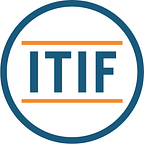Trailblazing Colombian Startup is Changing the Lives of Children Living with Cerebral Palsy
This post is one of a series in the #Innovate4Health policy research initiative. #Innovate4Health is a joint research project by the University of Akron IP Center (UAIP), the Information Technology & Innovation Foundation (ITIF), and the Geneva Network. This project highlights how intellectual-property-driven innovation can address global health challenges. If you have questions, comments, or a suggestion for a story we should highlight, we’d love to hear from you. Please contact UAIP Research Fellow Douglas Park at dpark@uakron.edu for more information.
By Natalie Khoo
Laura was a 5-year-old girl who lived in Maya, Cundinamarca, a rural town in Colombia. Unlike other children, Laura faced a unique set of challenges, for she was 1 out of 300,000 children in Colombia born with cerebral palsy. Cerebral palsy is an umbrella term used for a group of neurological disorders that appear in infancy or early childhood that permanently affect an individual’s ability to control body movement and muscle coordination. It is caused by abnormal brain development or damage to the developing brain that occur before, during, or shortly after birth. As a result, it disrupts the brain’s ability to control motor functions such as maintaining balance and posture, thereby making it the most common cause for childhood motor disability.
For Laura and the 18 million people affected by cerebral palsy across the world, the reduction in motor repertoire, coupled with the loss in the quality of movement can result in devasting consequences such as paralysis, especially if there is inadequate rehabilitation performed. Unfortunately, accessing appropriate rehabilitation services can often be a challenge for many families and children like Laura. In Colombia, approximately 70 percent of children with cerebral palsy live in remote areas where resources are scarce and access to specialized healthcare services including physical therapy and rehabilitation are largely unavailable. But one company- KitSmile- a Colombian health startup- has tackled this challenge by democratizing access to rehabilitation treatments for children living with cerebral palsy.
Inspired by Laura’s story, Leidy Cuestas and Lina María Camargo, the founders of KitSmile, created GymSmile- a 8-in-1 at home rehabilitation kit for children between the ages of 2 and 12 living with cerebral palsy. Unlike current rehabilitation devices, GymSmile has a multifunctional and interactive design that goes beyond improving posture, enhancing motor skills, and promoting balance. It has the ability to address a wide range of different therapy and everyday needs such as stretching, eating, and resting. Specifically, it draws upon the Bobath concept, a neurodevelopment treatment approach that leverages sensory and motor pathways in the brain to facilitate normal movement and regain motor control.
With its comprehensive design, GymSmile has revolutionized the field of rehabilitative care by offering families a cost-effective and portable alternative for ongoing physical therapy and support. As physical therapy is a first-line treatment for children with cerebral palsy, GymSmile ensures consistent access to daily therapy by integrating the rehabilitation journey into the comfort of their own homes, without the financial burden of frequent clinical visits or specialized equipment. Besides being cost-effective, a key aspect that the team at KitSmile considered while designing this innovative intervention was the durability and long-term impact this device could provide for patients. Hence, each rehabilitation kit is built to last for 10 years. By creating adjustable modules that range from 50 to 170cm, it enables caregivers to easily adjust the device to accommodate to the height and size of children as they grow, ensuring extended use and value. Long-term durability is also highlighted by the fabric on the medical solution, which is engineered to withstand high temperatures and liquids, while facilitating air circulation to prevent discomfort and eliminate bedsores.
Currently, KitSmile’s medical innovation has positively impacted over 205 children and their families, demonstrating the team’s commitment to improving the quality of life of low-income children with disabilities. By redefining accessible, effective, and innovative rehabilitation solutions, KitSmile, under the leadership of Leidy and Lina, has received 21 awards, including Call for LATAM Health Champions and The Bizz Awards, to name a few. Nevertheless, none of this would have been possible without the protection and support provided by intellectual property rights.
From the outset, Leidy recognized the importance of safeguarding KitSmile’s innovative solutions from competitors through patents and trademarks. However, like many innovators in developing countries, she faced initial challenges in applying for a patent. Determined to overcome them, she sought support from legal experts at Lloreda Camacho, a law firm in Bogota, Colombia, who helped her navigate the complex Colombian patent system. As a result, KitSmile was granted a patent and two trademarks for the therapeutic device, making Leidy Cuestas the youngest woman in Colombia to obtain a patent for a health invention.
The startup has also received significant financial backing — the company raised a total of $8 million from Colombian investors such as Vaki Capital and BBVA Momentum. In turn, KitSmile expanded its operations, reaching more children in need across Colombia. Their innovative business model, which uses a buy-one-give-one approach, has not only made their product accessible to low-income families, but has also garnered attention and support from stakeholders such as Tania Zapata and Alexander Torrenegra, who donated 50 million pesos to support the cause. Furthermore, through partnerships with hospitals, government entities, and other organizations, KitSmile has been able to scale its impact, providing essential rehabilitation support to children and families who would otherwise lack access to such services.
In essence, KitSmile’s success story highlights the critical role of intellectual property rights in protecting and enabling innovation, especially in developing countries. By safeguarding their inventions, Leidy and Lina have not only secured their place in the market but have also paved the way for more accessible and effective rehabilitation solutions for children with disabilities. Through their innovative approach, KitSmile continues to make a meaningful difference in the lives of countless families.
